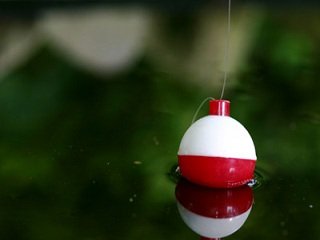Recently I was speaking with a friend of mine and she asked one simple yet profound question: What do you do when the fish aren’t biting?
To be honest, the question caught me off guard because it’s something I don’t think about too often. However, we discussed it a little further and illuminated several ways to be productive when you’re battling boredom on the water.
ALSO READ: 6 Tips for High Water Spring Trout
Nine times out of ten, when the fish aren’t biting, you need to make some lure changes. This, however, can mean altering your tactics any number of ways. Sometimes it’s as simple as varying your retrieval speed. Many are surprised at what a difference slowing down or speeding up the retrieve can make. Another way to add a little spice to the retrieve is to jerk the rod every now and then. Baits such as spinnerbaits or crankbaits will erratically shoot in differenr directions when this happens, and that sudden action appeals to fish.
Your lure itself plays an astronomical role in producing strikes. Sometimes all it takes a subtle change of color pattern to entice bites, while other times you may want to try a different size. With jigs and spinnerbaits, I’d also try adding a trailer if you find that the fish are looking, but not going that extra mile to strike. Then there are times when your lure—even your go-to lure—won’t attract fish at all, and then it’s time to change lures altogether.
Also Read our Spring Fishing Guide
Depending on the time of day and temperature, you may also need to relocate if the fish won’t bite. As the sun gets higher, the fish will move to deeper water and your honey hole will run empty. Those anglers with a boat can easily cruise around the lake, but anglers confined to the bank should check the shoreline for lily pads or other forms of cover where fish will situate.
If you’re using a bobber or catfishing, which means you’re letting the fish come to your bait, you can use the down time to run some spot maintenance on your tackle, or even rig another combo to have ready. Clean some of your gear and organize your equipment, also. It may not seem like a fun way to spend your time in between hook-ups, but why not use the time productively?
ALSO READ: 5 Tips for Bass Fishing With Lures
Fish are tricky targets, and it can be frustratingly boring when they just won’t bite. Use what you know about fish behavior, external factors such as light and weather, and know what to look for on the water and you’ll be pulling in keepers in no time. If you’re bobber fishing, use the free time to take care of a few tackle-related tasks. It may not seem appealing at first, but let’s face it: a slow day on the water is still better than a fast day at work.
Top 4 Fishing Lures of 2015
-
MegaStrike Strikeback Spinnerbait ($9)
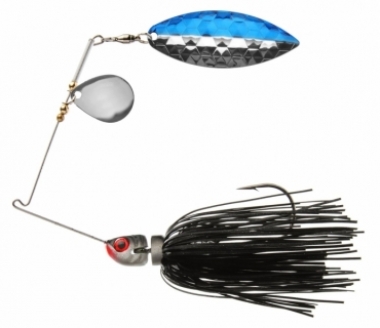
Having been around for years and long since earned a place of prominence in anglers’ hearts and tackle boxes, it’s hard to imagine improving the spinnerbait. This year, though, MegaStrike did just that by incorporating a swivel joint in the bait’s jighead, allowing the skirted hook to swing side-to-side and offer an even more appealing presentation. This boost in on-the-water results has anglers raving. The bait also features a jeweled blade to reflect more light and a razor sharp 5/0 Mustad hook. Photo credit: Amazon.com
-
LiveTarget Hybrid Shrimp ($13)
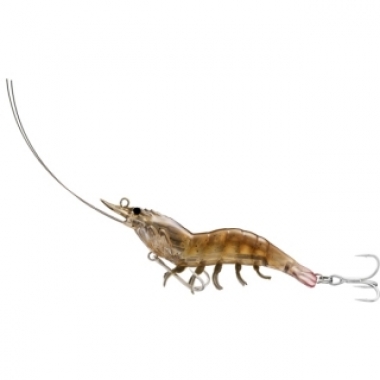
LiveTarget exploded onto the fishing scene a few years back with its incredible lifelike and durable crankbaits, and hasn’t looked back since. This year, the company introduced the Hybrid Shrimp, which has left inshore anglers drooling. A near-perfect imitation of a shrimp, the lure features a hard body with soft plastic legs and antennae, as well as a treble hook at the rear and a custom belly hook to minimize hang-ups when you’re chopping through vegetation in search of redfish. Photo credit: Dicks Sporting Goods
-
Bomber Long Shot ($10)
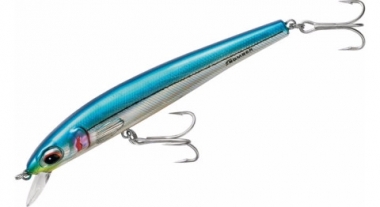
Slender, hard plastic minnow baits may not seem like they need help in casting fair distances, but Bomber’s Long Shot minnow lures truly go the distance. A built-in internal weight transfer system allows the Long Shot’s internal rattle to roll to the tail end of the bait on the cast, but then roll back into position when the lure hits the water, allowing it be thrown a country mile when you’re creeping shallow saltwater billabongs and canals. Photo credit: Cabelas
-
Lucky Craft Kerroll Max ($16)
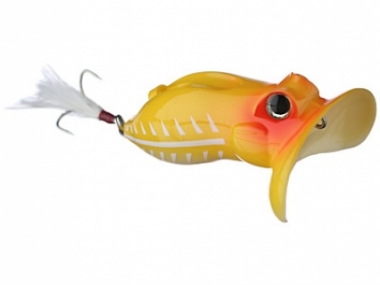
Bass anglers know that some of the best bass action is had after the sun sets. There are plenty of noisy, water-churning topwater bass lures out there to draw explosive strikes from bass during the twilight hours. Lucky Craft’s Kerroll Max is a new topwater noisemaker that features a huge cupped mouth that allows it to shake from side to side while churning up a ton of water. Furthermore, the lure also features a slot along its back to fit a small glow stick (included), for a boost in visibility. Photo credit: Tacklewarehouse
